#ShiftThePower and Me: Direction, flexibility and collective action – my time leading a community foundation in Brazil
04 Feb 2022
This piece also appears on the #ShiftThePower Treehouse.
I am writing this blog as I sit by the sea, on a light sand beach in my hometown, Florianópolis, in Southern Brazil. It’s summer here and the feeling of rest with “no professional strings attached” is both unusual and weird. I have been the Executive Director of our community foundation – ICOM – Instituto Comunitário Grande Florianópolis – for over five years, and it has been less than four weeks since I left the position to open myself up to new opportunities and experiences. I continue to be involved with ICOM as a member of the Advisory Board and a forever-fan and supporter. (ICOM is a community foundation that promotes community development in the metropolitan region of Florianópolis. It was co-founded by a group of six women in 2005 and is well known for its innovative methods and programmes.)
After taking some quiet time to clear a very busy mind, I have been able to reflect, and to gather some learnings and insights based on my practices and experiences during my time at ICOM (2016 – 2021). I thought these could be of interest to community foundation executives, board members, new leaders, donors and supporters. I have offered these learnings, insights and stories below, in four different parts.
The first part touches on my experiences in designing programmes and responses to community issues. The most successful initiatives were launched collectively with the right mix of strategic direction and flexibility. The second main insight I would like to share is that engaging people and attracting local donors is possible when you are people-focused, and build and maintain genuine relationships beyond money. Really getting to know people, and understanding their motivations behind why they want to contribute to their community, to me, was one of the most enjoyable parts of my job. Without engagement, no programme or service would have been possible. The third learning is about participation and working together: a common, well-known practice of organizations in our field. I believe that applying different participatory methods – to both internal decision-making as well as external processes involving the community – transformed them for the better. Finally, I also bring to this post an insight that has stuck with me. This is that, as a leader, it’s vitally important to have a strong support system and a good work-life balance in order to drive results and make a great impact in anything you do.
1. The right mix of direction, flexibility and risk-taking boosts responses to community issues
For ICOM, the periods of greatest community mobilization happened when we decided to let go of previously established planned activities, and redirected organizational efforts to respond to the community’s most pressing issues. Six emergency response initiatives were launched during my time as ICOM’s leader. Five of them were created in 2020, due to the COVID-19 crisis, which ultimately impacted thousands of people and assisted over one hundred groups and community-based organizations.
Four years ago, in January 2018, we came back from the holidays and started working on our strategic plan, which was collectively built with stakeholders. I still remember feeling that our goals were ambitious for that year. Fundraising targets were high, multiple initiatives were ongoing and we were a small team of five people. During that same week, heavy rains started to cause massive damage in 21 municipalities in our State, Santa Catarina, affecting thousands of people. As the extent of the damage became known, community members started reaching out to ICOM. ICOM’s team and board members got together. The severity of the situation hit all of us, and the State Secretariat of Civil Defense of the State of Santa Catarina reached out to us, asking for collaboration. That’s when flexibility plays an important role, as you only have a small window of time for decision-making. We (board and team) decided to reorganize ourselves around an Emergency Response Initiative. We mobilized and engaged the community through the creation of a community fund (the second Emergency Fund launched by ICOM) in cooperation with the State Secretariat and local civil society organizations, responding quickly to local challenges. Additionally, partnerships were established with Municipal Governments, Municipal Civil Defense organizations and Social Welfare Secretariats in nine municipalities, which brought legitimacy and increased mobilization efforts. In less than three weeks, we mobilized BRL $253,000 (just under US $50,000) from five organizations and 73 individuals. Together, we gave support to approximately 200 people, 55 families, and three organizations that were severely impacted by the rains. They were from nine municipalities, and took into account the priorities of each partnering city.
“In my humble opinion, ICOM’s story is worth telling because of what we managed to achieve in terms of building a culture of giving in Florianópolis.”
The COVID-19 crisis in March 2020 brought additional complexity as there was the challenge of directing a virtual team in a period of time when concerns were beyond health, and included food insecurity and deepening inequalities. We launched an Emergency Line of Support to mobilize donations and distribute grants to vulnerable communities. Local governance structures were created (there were seven by the end of the year), bringing new expertise and people together to discuss how we could promote social justice while distributing grants. As a result, a digital Community Bank was launched to support vulnerable families – the first of its kind in the state of Santa Catarina. This was launched collectively between ICOM, local community-based organizations and a social enterprise. During that same year, ICOM received contributions from over 1,300 donors (mostly individuals) and our grantmaking capacity increased significantly (in 2021 we made grants totalling the same figure as 70% of the total grants distributed in the 15 years prior).
Our experiences responding to crises, and the new mechanisms developed during these times of disruption, have shaped ICOM’s work. We were able to increase and diversify local donations, expand our reach to more municipalities in the state, started working with more informal, vulnerable groups, while also gaining experience in social justice philanthropy. During COVID-19 in particular, the ICOM team also learned new skills as our responses were launched 100% virtually. (Read more on ICOM’s COVID-19 response here.)
I think it’s important to stop here and to underline that all of this was achieved in Brazil. While there is much solidarity between individuals in Brazil, there is not a wider, more organized culture of giving or philanthropy in the country. It is particularly difficult to mobilize local resources for social justice issues. In my humble opinion, ICOM’s story is worth telling because of what we managed to achieve in terms of building a culture of giving in Florianópolis. This isn’t Canada, the U.S. or the U.K. – this is Brazil! So I’m writing this paragraph to readers around the world who might be thinking “But that wouldn’t work here, we will never be able to encourage local people to give.” I assure you that – with some clear direction, flexibility, hard work, strong relationships, perseverance and enthusiasm – it is possible.
2. Increasing engagement and donations: It’s all about building and keeping relationships
Relationships of trust are what kept me moving forward. At the community level, with the team, board members, donors and public officials alike. It is so important to take a genuine interest in people, but also to enjoy the process of strengthening ties with others. I have established long-lasting relationships and true friendships during my time at ICOM, which I am proud to carry with me beyond the job.
“It is so important to take a genuine interest in people, but also to enjoy the process of strengthening ties with others.”
When I first joined ICOM, it had so many connections built at the local level. Board members, current and past employees, volunteers, people who have been impacted by our programmes, donors, admirers etc. This is the result of other people’s efforts since 2005, and I believe that ICOM has been very successful in maintaining those relationships and connections, and in building trust locally. I learned a lot by connecting with others and did my best to strengthen the relationships that ICOM already had, while bringing new people to the team, to the board, and attracting new local donors that will most likely continue to be engaged with ICOM’s purpose. I still remember when I closed my first contract with an institutional donor. I went out for a coffee with a person that was already part of ICOM’s network, and someone I truly admire. I shared with her an honest overview of some of the challenges we were facing at the time, while sharing a vision and dreams for the future. We did not talk about money. Two days later, she wrote to me saying that she wanted to make a financial contribution to us. That was so unexpected but so important at the same time. Her donation – but also her advice – really impacted our work in the coming years.
We also applied the “relationship mind-set” to our social media strategy. We regularly communicated with others online, which resulted in successful campaigns to raise funds for social justice issues – and a digital community of over 4,000 Instagram followers.
3. A community foundation is a collective effort
A successful organization, in my opinion, can empower people, so that everyone feels that they too are an “owner”, including team members, board members, donors and community members. It should feel like a space where people can grow and learn. It is important to remember that a community foundation is simply a group of people, working together to fulfil a specific mission around community betterment and social justice. There won’t be a superhero, and leaders should not try to be one. During the first two years as ICOM’s Executive Director, I would sometimes have a tendency to isolate myself when feeling overwhelmed with responsibility and pressure to deliver results. This was especially true in terms of fundraising. I held the limiting belief that I should be able to handle things without “bothering” the board and team – and this is something that was hard to let go of. But with practice, I learned that a good leader knows how and when to deploy an organization’s existing assets and when to mobilize new ones – not to mention when to ask for help.
“A community foundation is simply a group of people, working together to fulfil a specific mission around community betterment and social justice. There won’t be a superhero, and leaders should not try to be one.”
Governance played an essential role in terms of making strategic decisions about the direction of ICOM, and in terms of staying true to our mission. Strong governance is a requirement for a strong organization, which means that when things are not going so well on the outside, we should be looking to the inside as well. I have worked together with the board intensively, especially during my first two years as Executive Director. We had a practice of holding monthly meetings, and extra meetings whenever needed. Board members were real mentors to me and I am grateful for that. Advisory Board members would also meet twice a year. Whenever donations were not forthcoming or projects were not meeting expectations, instead of blaming others (the culture of philanthropy in Brazil, corporations failing to understand what you mean with community foundation terminology, team members not contributing, and so on) we would ask ourselves the following questions:
- Do people know why our organization exists?
- What public challenges are we trying to tackle?
- We don’t have enough donors, but do our board members donate?
- Is the team prepared for the challenges we face?
If we were failing to engage people who were officially part of “us”, how could we attract people who had never heard of ICOM before? Our first event based on the The Funding Network model was held in 2018. The strategy used was to invite our 30 board members (including the Board of Directors and Advisory Board) to join the event. In turn, they were each asked to invite two people. That event achieved our fundraising goals and engaged board members in giving in a very fun way – a great experience for everyone!
During my years as Executive Director, I made efforts to build participative management, in order to build collective ownership of ICOM. I believe that getting the staff involved in decision-making has contributed to ICOM’s team being more deeply committed to the social issues that we face in Greater Florianópolis. This participative management style has promoted more collaboration and regularly uncovered creative solutions that existed during the team (but which we may otherwise not have known about) over these last five years.
One specific example was the 2021 Christmas campaign to raise funds for vulnerable families through our community bank. The campaign had been discussed with our board members and was led by ICOM’s Project Coordinator, who successfully gathered five other people from the team to join the fundraising efforts, including ICOM’s communications team. In less than three weeks, they raised BRL $104,000 (US $20,800) from 73 local individuals and four businesses. The campaign benefited 954 families and small businesses in vulnerable communities in Florianópolis. This was an autonomous, empowered team, and I am so proud of them.
With regards to collective efforts, communication is key to achieving a community foundation’s mission. Always speak up and lead people around a shared vision. I have learned that communicating in layers is important too. You don’t want an institutional partner to receive big news through social media. We were always careful to reach out to key partners before communicating something important more broadly. We also did that when launching new initiatives or sharing our results. We gave our closer network top priority when communicating: local donors and groups, community-based organizations we partnered with, and board members. This made them feel they are an important part of ICOM and built ownership.
4. Don’t neglect the importance of a strong support system, professional development and a good work-life balance
My first year as Executive Director was very intense. At some point during that year, I went to a consultant’s home that we were working with on a specific capacity-building service ICOM was offering to local groups. We ended up talking about some organizational structure and team arrangement decisions that I was facing at the time (going well beyond our original purpose for that day). I started listing all of the roles and responsibilities ICOM had in our community, writing each of them on small pieces of paper (projects, services, calls for proposals, institutional tasks, important spaces we were a part of etc.). Then, I matched those papers to each team member at the time, including myself, to better understand the big picture. A few days later I brought that information to the team, and we made important decisions together about how we could better manage our workload moving forward. But I still have that image in my mind: me sitting on our consultant’s sofa late at night, looking at her living room floor almost all filled with small pieces of papers. That helped me so much as a leader – and we obviously became friends.
“Sometimes you fall into places of blindness and you don’t know how you ended up there. You can become inert with all of the overwhelming responsibility and pressure that comes along with taking care of so many different aspects of the organization at the same time.”
Reflecting on that evening after almost six years of leadership experience makes me realize it was a very logical thing to do at that time. But sometimes you fall into places of blindness and you don’t know how you ended up there. You can become inert with all of the overwhelming responsibility and pressure that comes along with taking care of so many different aspects of the organization at the same time. A mentor or someone you trust (other than your team or board, someone you feel comfortable being vulnerable with) can help you think in a more reasonable way when you fall into those places. Having a mentor, who I met regularly, would have made my life as a leader a lot easier. I really believe that community foundation leaders – not to mention the organizations led by them – would benefit from having a well-thought through, professional mentorship programme.
Thinking about the wider field and its structures, some spaces and programmes were really important in giving me support and strengthening my leadership role at ICOM. They influenced my work and leadership style. In 2016, when I was just a few months in the role, I was lucky to attend the GFCF’s Global Summit on Community Philanthropy, an event that brought together a diverse group of 400+ practitioners from all around the globe to talk about power and a more equitable paradigm of people-led development. There, I not only made important connections for ICOM, but also shared our Participatory Study on Homeless People. In 2017 I was chosen to attend the Center on Philanthropy and Civil Society’s International Fellow Program run by CUNY. During my time there I attended weekly seminars, explored the work of key agencies and foundations, met with non-profit leaders, and studied U.S. and international community foundation models. I also attended the Community Foundations of Canada conference during that same time – all of which inspired some initiatives and changes implemented at ICOM.
Moreover, being connected and exchanging experiences through different networks of peers kept me going! Convenings organized by the GFCF, the Brazilian Social Justice Philanthropy Network and its members, the Ibero-American Network of Community Foundations, and various events organized by WINGS were all massively helpful to me, in terms of making contacts and hearing from individuals with valuable experiences and similar challenges.
Last but not least, my thoughts on work-life balance. Knowing when to stop to energize is so important. This is something I found difficult to do. My recommendation to any community philanthropy leader is: take time to refresh and restore yourself from time to time and don’t let yourself get burned out. You can’t lead an organization well if you are not well. That’s something I learned the hardest way when I went through a stressful time in 2019. I took an emergency vacation for 15 days and was able to turn the situation around to face new upcoming challenges in 2020. Awareness of self-care should apply to everyone in your team.
Overall, the experience of directing a Brazilian community foundation has been transformative for me in many ways. I leave my official role wishing much strength to my community foundation peers around the world. I truly admire the work you all do and believe that a better, more just world is possible, one community at a time. I am also excited about what the future holds for me as I look for new opportunities to promote social transformation. Of course, I’m hoping to still see my peers around!
By: Mariane Maier Nunes, Executive Director of ICOM – Instituto Comunitário Grande Florianópolis from 2016 – 2021. Mariane continues to sit on ICOM’s Advisory Board.


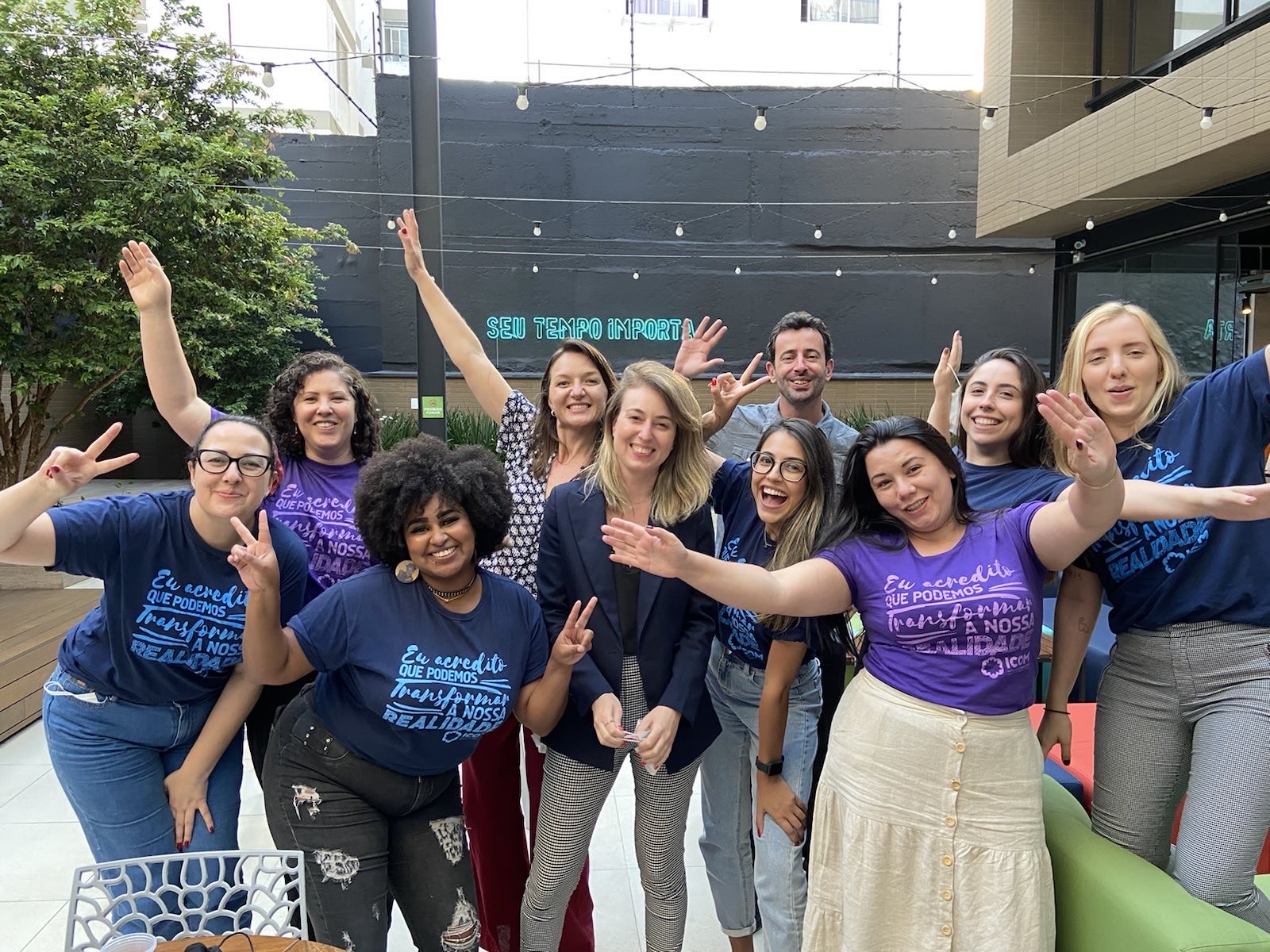
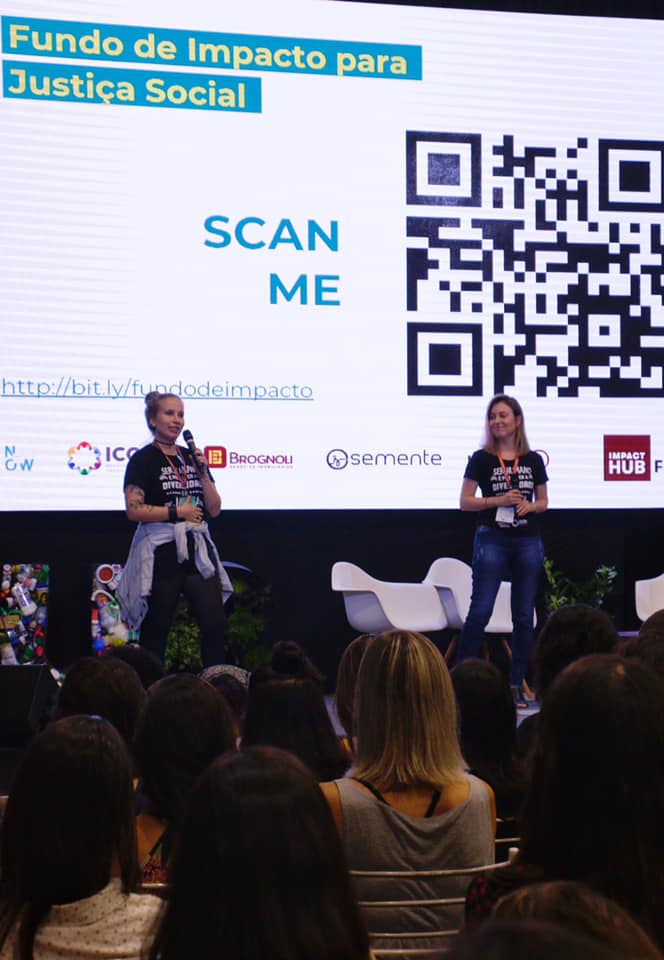
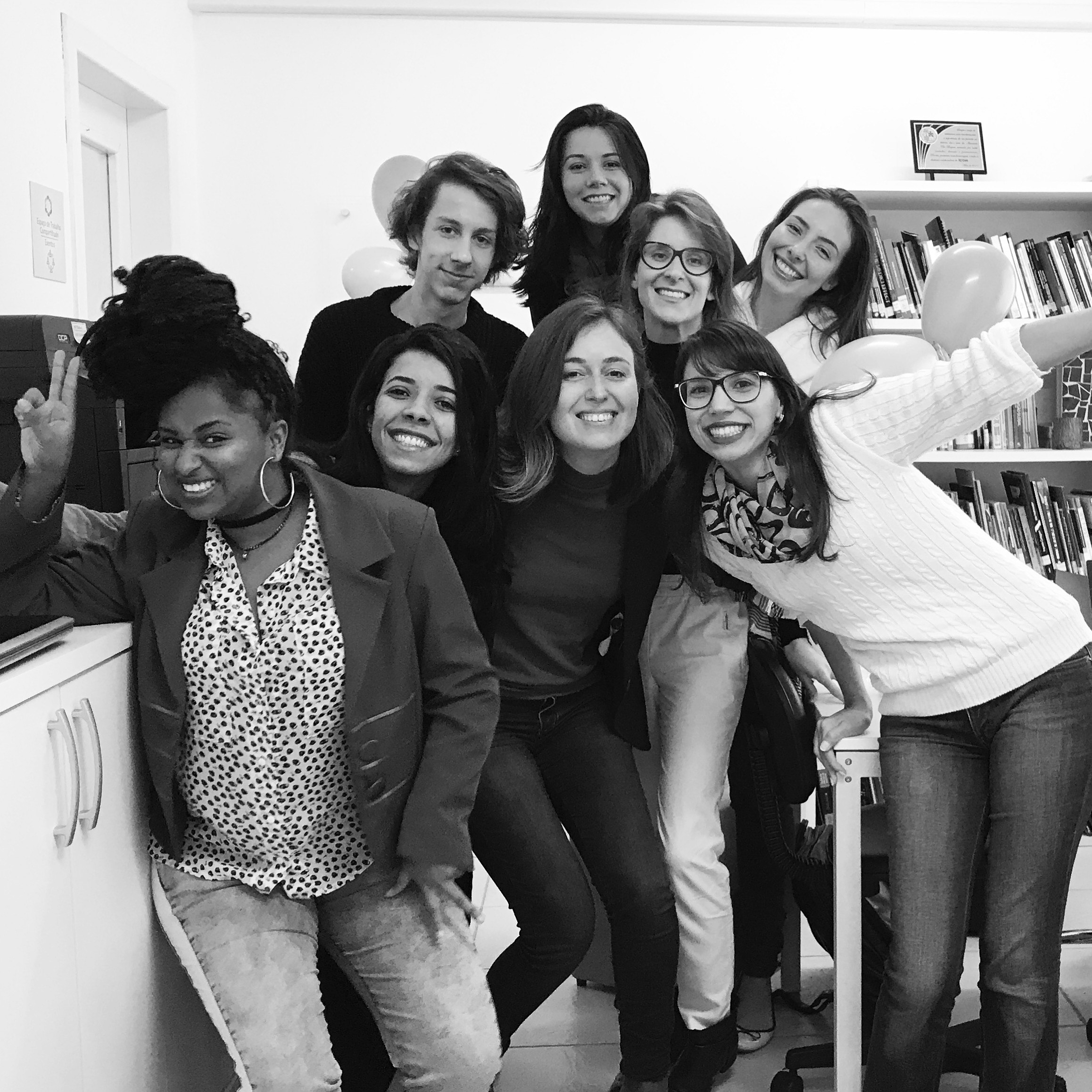
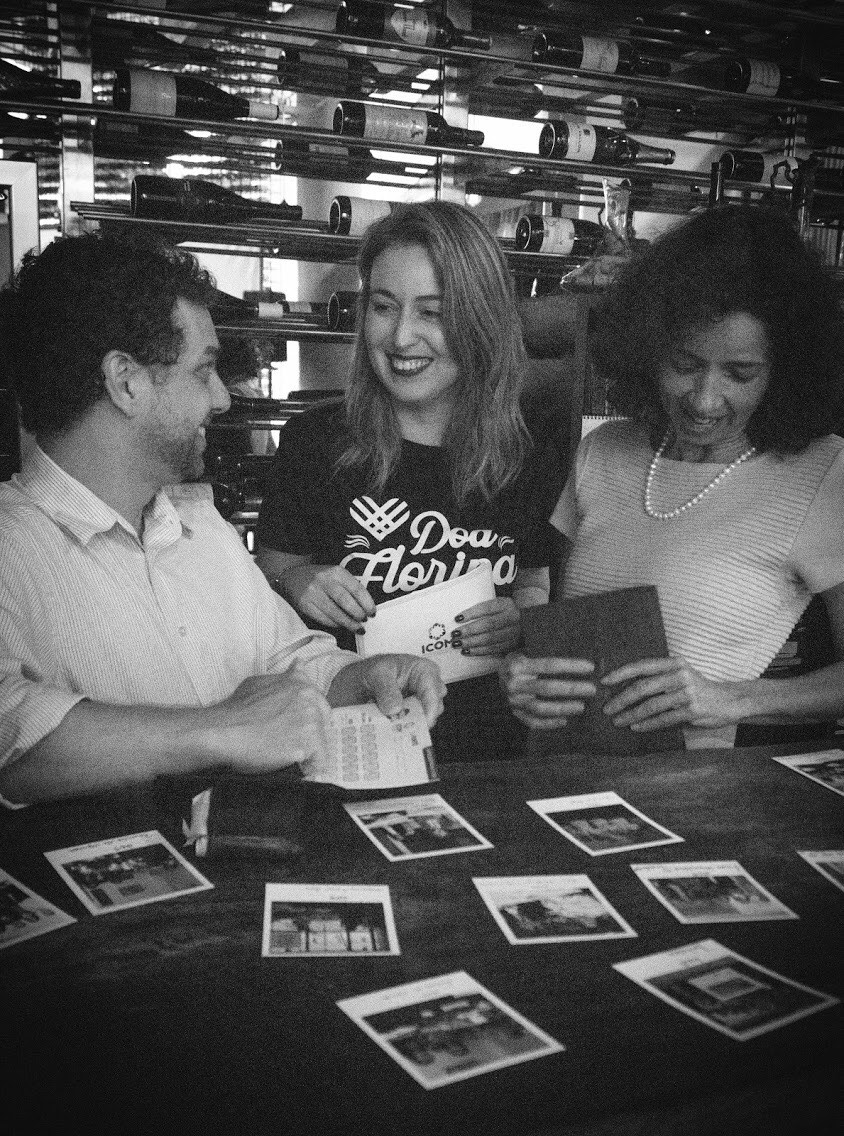
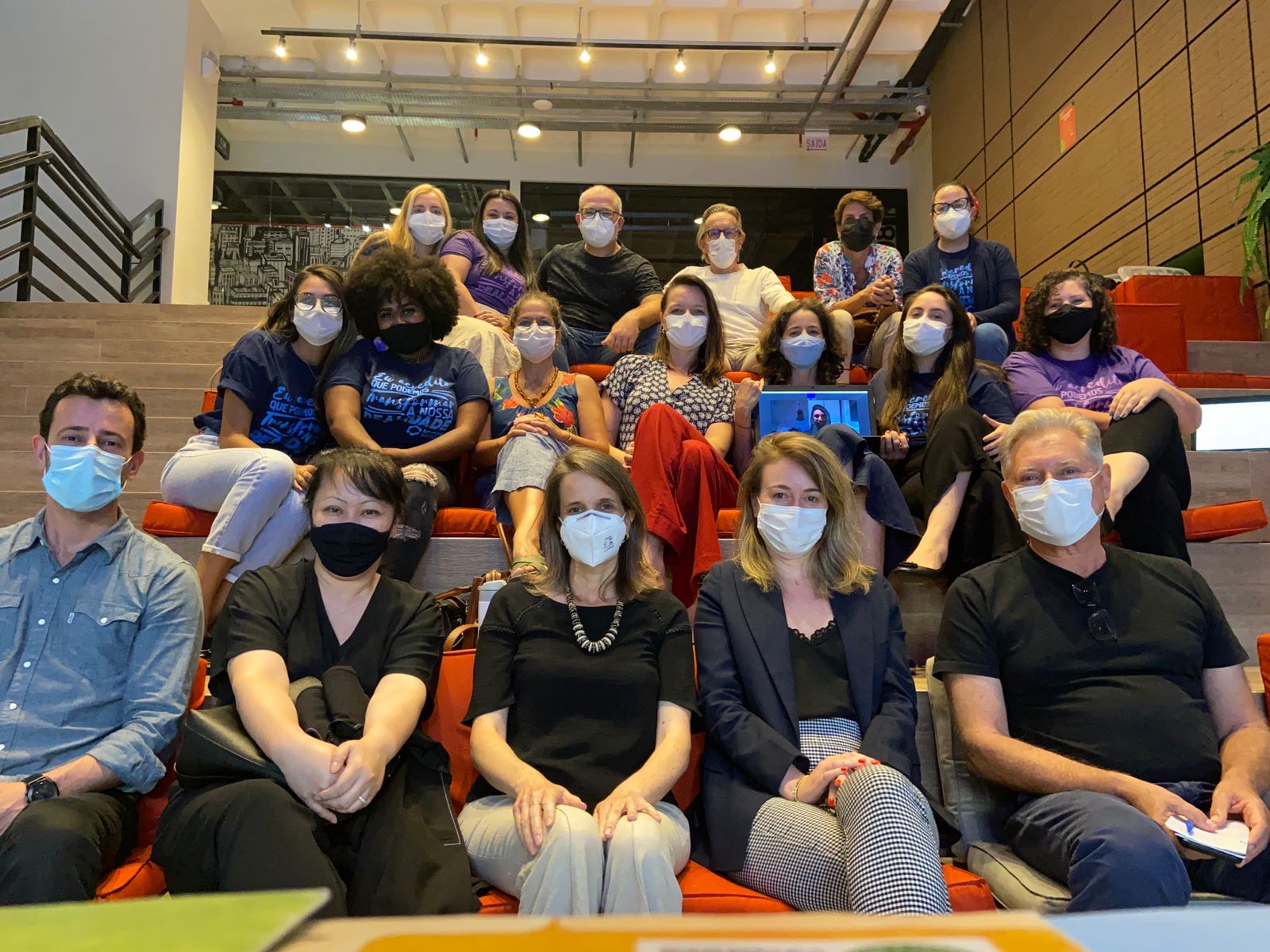

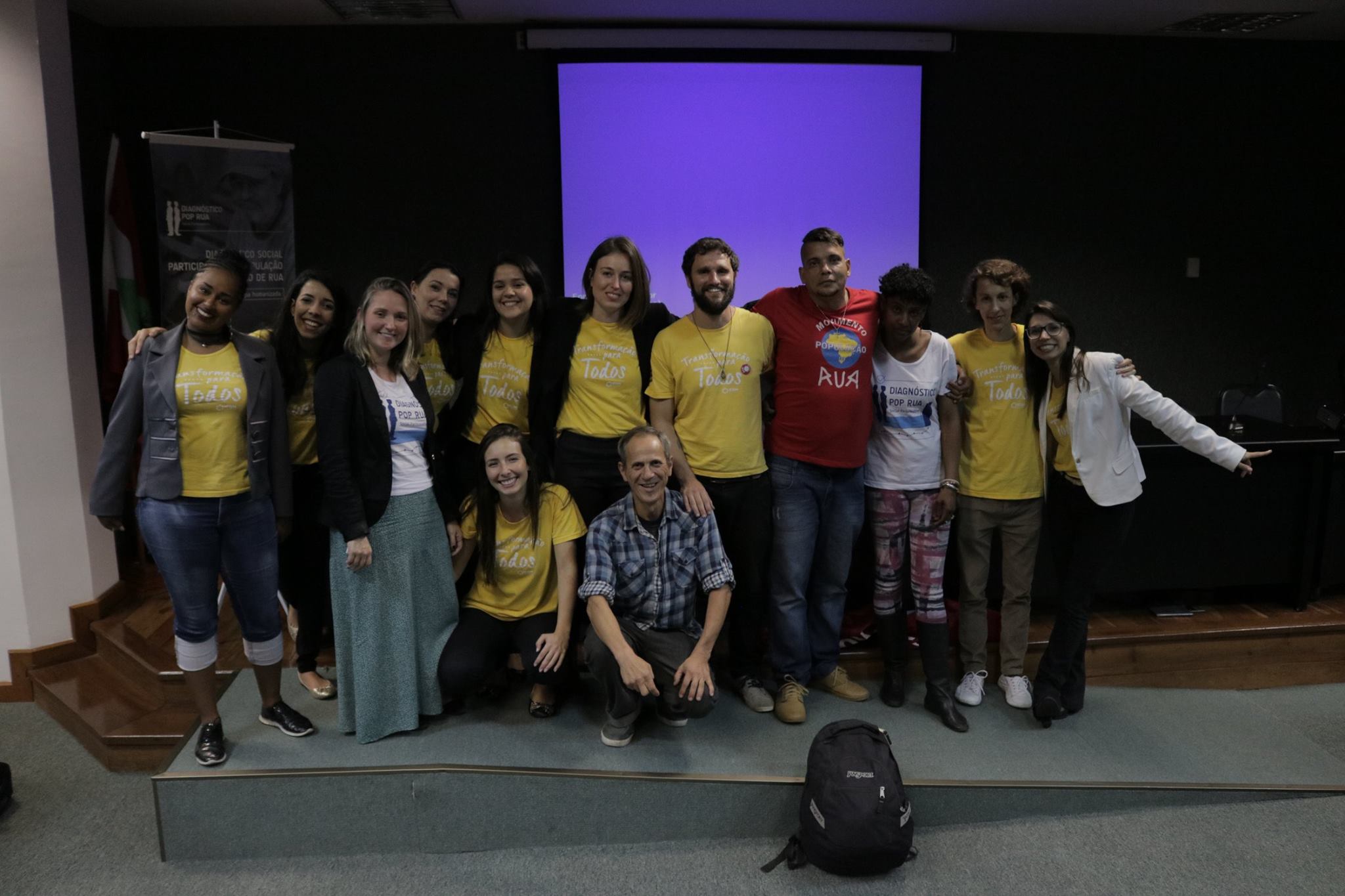
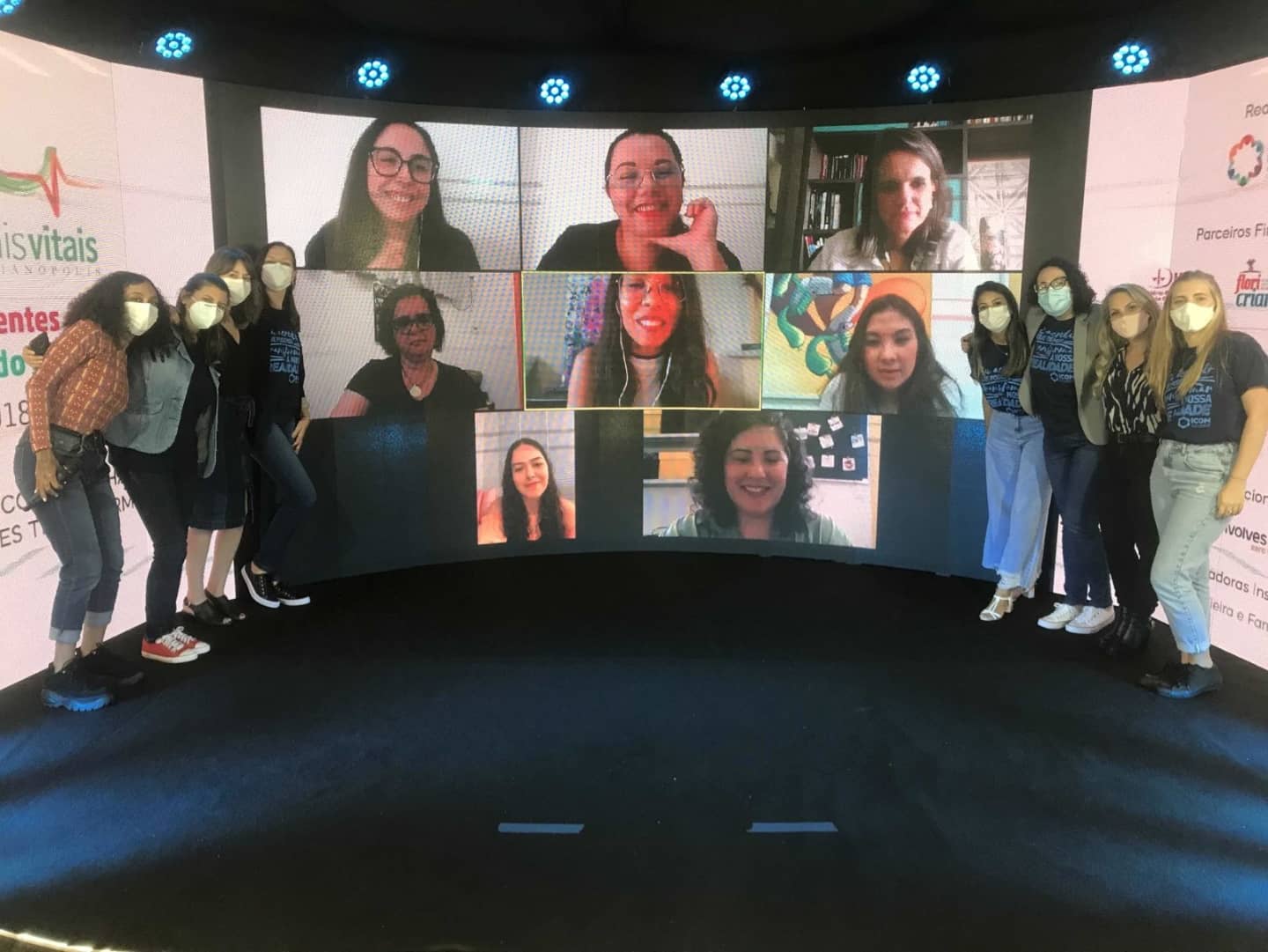



This post is an incredible reflection on the challenges and learnings of a community foundation leader. I had the honor of working with Mariane at ICOM and I feel happy and proud of her path. I wish Mariane success and social impact in her next experiences! Thank you Global Fund for so much support and partnership over the years in Brazil.
Thank you, Mariane, for such an insightful and important view into the world of a community foundation leader in Brazil!! It has been an honor to work with you and learn from you and your team.